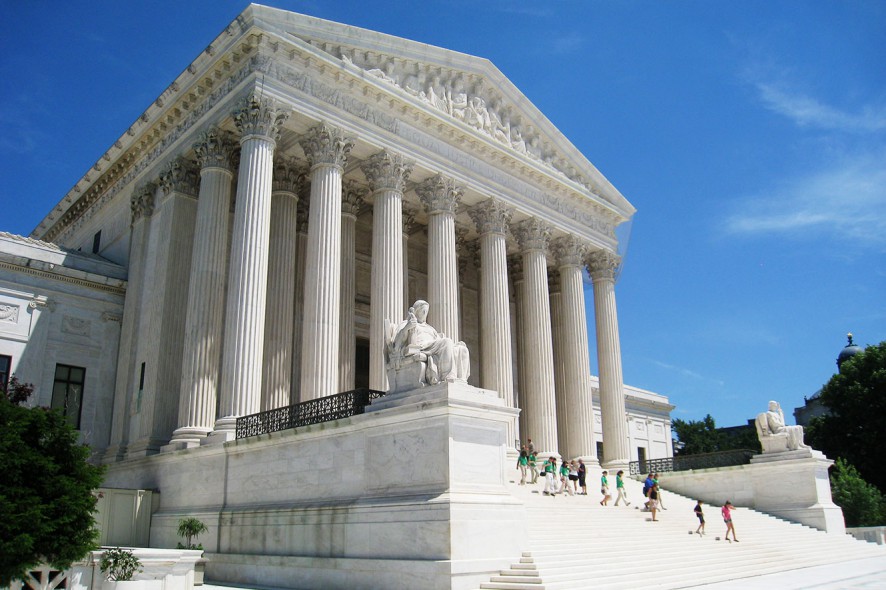Supreme Court of The United States (SCOTUS): On April 1st, the 9 Judge Bench of the Court while looking into the allegations levelled against Facebook for violating the Telephone Consumers Protection Act, 1991 (hereinafter TCPA), held that the Court cannot rewrite the TCPA to update it for modern technology. Congress’ chosen definition of an autodialer requires that the equipment in question must use a random or sequential number generator. That definition excludes equipment like Facebook’s login notification system, which does not use such technology. The Court held that in order to qualify as an “automatic telephone dialing system” under the TCPA, a device must have the capacity either to store a telephone number using a random or sequential number generator, or to produce a telephone number using a random or sequential number generator.
The facts as they stood; popular social media platform Facebook, as a security feature, allows users to elect to receive text messages when someone attempts to log in to the user’s account from a new device or browser. Noah Duguid was sent such texts by Facebook which alerted him to a login his Facebook account linked to his mobile number. The twist in the tale came up when Duguid stated that he never created that particular account or for that matter any other account on Facebook.
Duguid tried unsuccessfully to stop the unwanted messages, and eventually brought a putative class action against Facebook. He alleged that Facebook violated the TCPA by maintaining a database that stored phone numbers and programming its equipment to send automated text messages. Facebook contended that the TCPA does not apply because the technology it used to text Duguid did not use a “random or sequential number generator”. The Ninth Circuit’s however did not favour Facebook when it held that S. 227 (a) (1) of the TCPA applies to a notification system like Facebook’s that has the capacity to dial automatically stored numbers.
The Telephone Consumer Protection Act of 1991 (TCPA) forbids abusive telemarketing practices by, among other things, restricting certain communications made with an “automatic telephone dialing system.” The TCPA defines such “autodialers” as equipment with the capacity both “to store or produce telephone numbers to be called, using a random or sequential number generator,” and to dial those numbers.
Perusing the facts and the relevant statutes, the Court observed that the issue is that whether the clause “using a random or sequential number generator” in S. 227(a)(1)(A) modifies both of the two verbs that precede it (“store” and “produce”), or only the closest one (“produce”). The former interpretation was adopted by Facebook in the matter. The Court noted that the most natural reading of the text and other aspects of S. 227(a)(1)(A) confirms Facebook’s view-
- In an ordinary case, the “series-qualifier canon” instructs that a modifier at the end of a series of nouns or verbs applies to the entire series.
- The modifying phrase immediately follows a concise, integrated clause (“store or produce telephone numbers to be called”), which uses the word “or” to connect two verbs that share a common direct object (“telephone numbers to be called”).
- The comma in S. 227(a)(1)(A) separating the modifying phrase from the antecedents suggests that the qualifier applies to all of the antecedents, instead of just the nearest one.
The Court further observed that the text of TCPA confirms that the statute’s definition of “autodialer” excludes equipment that does not use a random or sequential number generator. “Congress found autodialer technology harmful because autodialers can dial emergency lines randomly or tie up all of the sequentially numbered phone lines at a single entity. Facebook’s interpretation of S. 227(a)(1)(A) better matches the scope of the TCPA to these specific concerns”. The Court noted that even though Duguid broadly construed the TCPA vis-à-vis privacy, however, the Congressional intent was clear about intrusive telemarketing practices, which is why the Congress ultimately chose a precise autodialer definition. [Facebook Inc. v. Duguid, 2021 SCC OnLine US SC 2, decided on 01-04-2021]
Sucheta Sarkar, Editorial Assistant has reported this brief.







